HR leaders urged to handle work management in global uncertainty
To provide practical advice to HR leaders and organisations on how to navigate the next normal for their organisations, Manpower Group, in partnership with Everest Group, has just launched the three-part The Future of Work series.
The research leverages existing data from a survey of 200 senior HR leaders across various geographies, industries, and organisation sizes. In the research, three key questions confronting the workforce and workplace mechanics, are addressed: Where the work will be done? Who will do the work? How will the work be done?
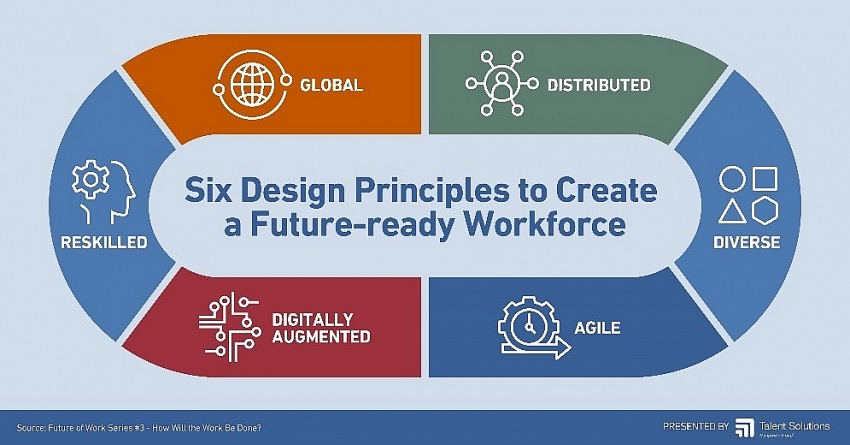 |
Before 2020, rapid technological advances, changing workforce demographics, and evolving customer expectations were already shaping work and the modern workplace, and COVID-19 accelerated this momentum. Major disruptions have arisen, and remote working has become mainstream.
The global talent shortage is on the highest rise in 2022 versus the consecutive increase over the past decade. Organisations want to improve diversity, equity, and inclusion (DE&I) in the workforce. Industries are looking beyond the traditional talent model. Moreover, companies are adopting a digitalised way of working, and an employee training challenge is emerging.
Regarding the question of where the work will be done, organisations agree about moving to the hybrid working model. About 64 per cent of the surveyed HR leaders said that remote work helps significantly improve organisations’ ability to hire talent. However, the actual planning and transition is fraught with challenges.
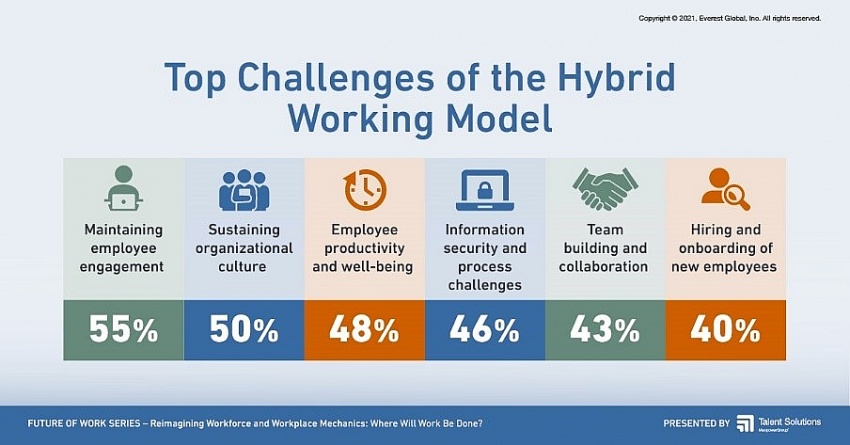 |
“Companies now realise that quality work can be done from anywhere. Leaders understand they need to make necessary operational changes to ensure their team feels productive, happy, and healthy, regardless of where they set their laptops. The hybrid work model is only part of the new well-being of workers in the new normal. Other elements related to Who will do the work, Where and How the work will be done should be the top priorities of leaders to consider for building successful talent acquisition strategies in a changing world of work”, said Andree Mangels, general manager at ManpowerGroup Vietnam.
According to the research, as organisations experience a real urgency to improve their DE&I outcomes, the actual planning and implementation initiatives are fraught with difficulties. The paper recommends that organisation leaders take a four-step approach for creating a truly diverse workforce while promoting a culture of belonging.
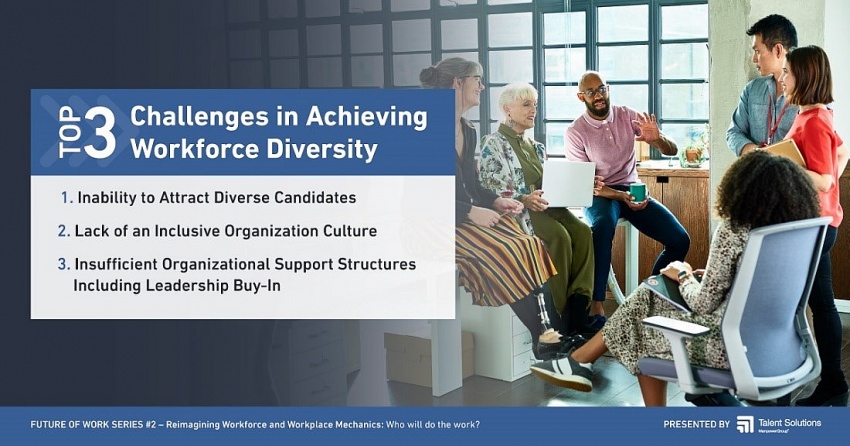 |
The research adds amid talent shortages, changing business models, and increased economic volatility, contingent workers have become more important. About 73 per cent of organisations expect to increase the leverage of contingent workers in the next 12-18 months.
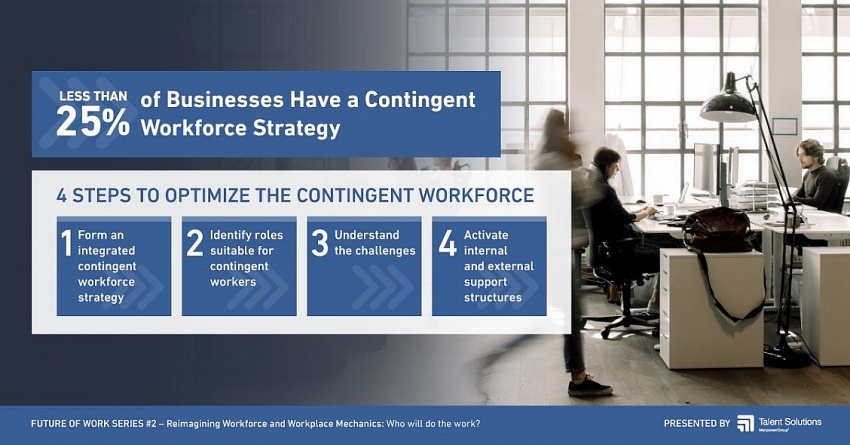 |
The research also finds that major organisational goals have been driving employer and employee focus towards training, with 83 per cent of enterprises already increasing their emphasis on employee training efforts over pre-pandemic times. Nevertheless, they need to overcome certain barriers to fully realise their training goals.
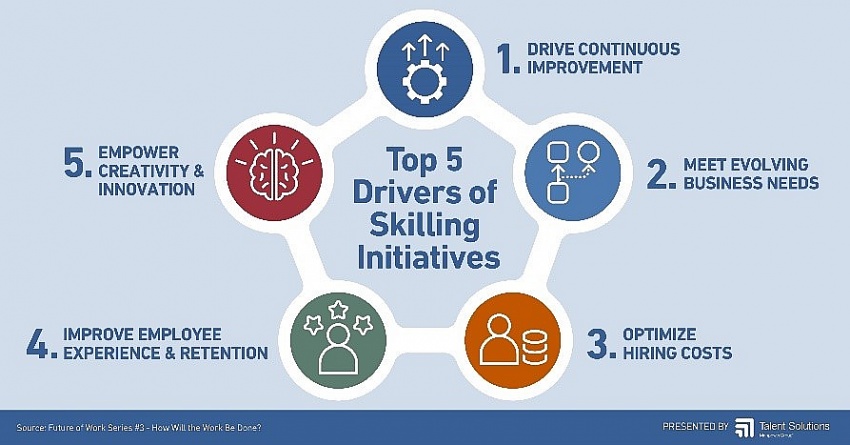 |
Experts said that organisations must be clear about the distinction between digital augmentation of the workforce and replacement of the workforce.
With the increasing use of technology, the landscape for human employees will not reduce but evolve in the long term. Both employers and employees need to realise that the purpose of digitalisation is to support and amplify human contribution to the organisation, not to minimise it.
What the stars mean:
★ Poor ★ ★ Promising ★★★ Good ★★★★ Very good ★★★★★ Exceptional
Related Contents
Latest News
More News
- Green jobs needed as businesses embrace sustainability (April 06, 2023 | 11:24)
- Facing the biggest HR challenges in 2022 (October 10, 2022 | 12:14)
- Solving talent shortages amid fierce human capital landscape (August 26, 2022 | 16:18)
- Employers expect hiring to increase in H2 (August 13, 2022 | 21:30)
- Stakeholders seek sustainable strategies to retain workers (June 21, 2022 | 17:54)
- Accelerating trends and renewed urgency for labour (May 05, 2022 | 14:25)
- Latest HR trends in logistics revealed (April 28, 2022 | 14:38)
- Sustainable employment under digital transformation and the pandemic (October 29, 2021 | 15:04)
- Employment security and the future of skills for Vietnamese workers in digital transformation (October 26, 2021 | 17:20)
- Strengthening businesses’ immune system prior to economic reopening (September 29, 2021 | 13:58)

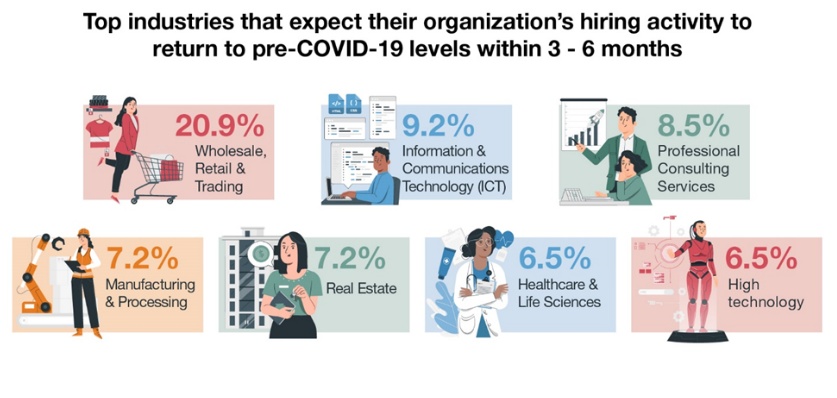

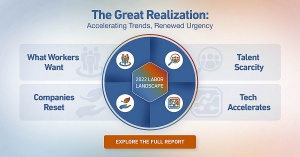

 Tag:
Tag:

























 Mobile Version
Mobile Version